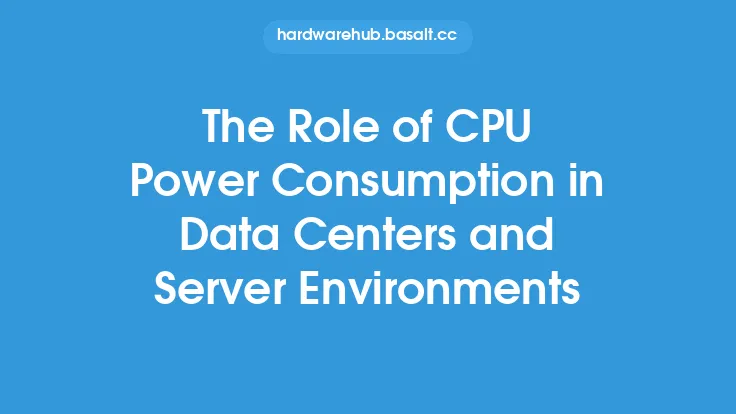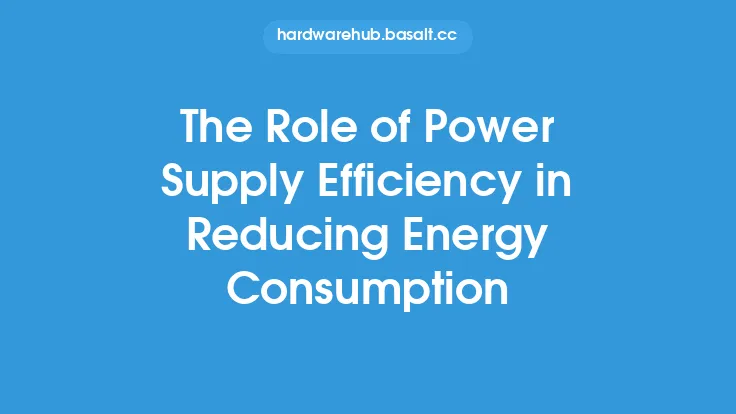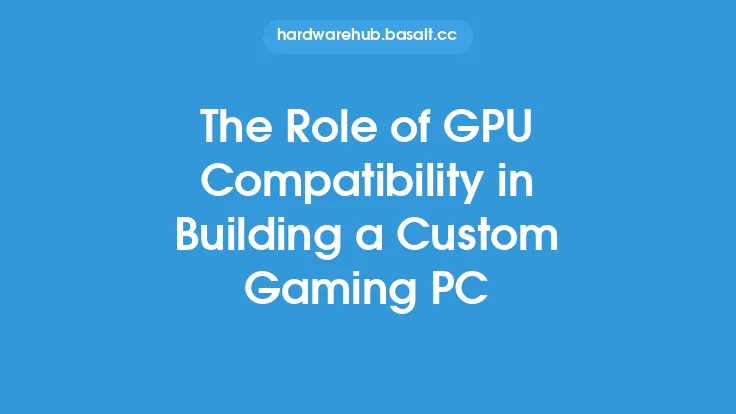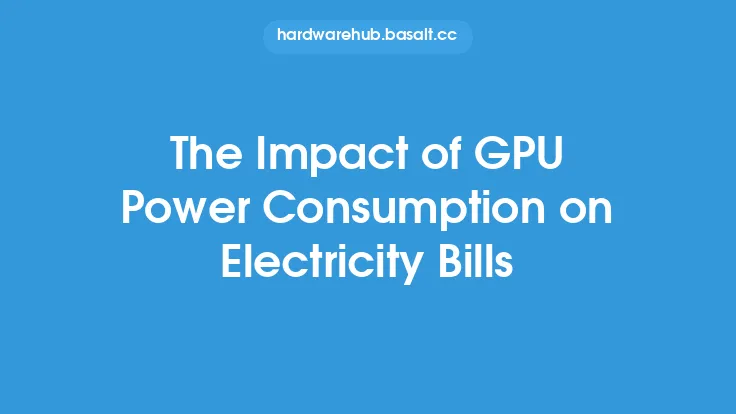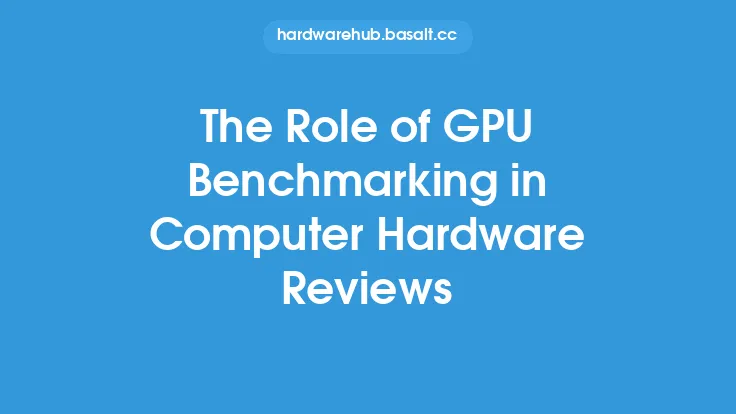When planning a system build, one crucial aspect to consider is the power consumption of the graphics processing unit (GPU). The GPU is a critical component of any computer system, responsible for handling graphics processing, compute tasks, and other demanding workloads. As such, it is essential to understand the role of GPU power consumption in system build planning to ensure a balanced, efficient, and reliable system.
Introduction to GPU Power Consumption
GPU power consumption refers to the amount of electrical power required to operate the GPU at various levels of activity. This can range from idle states, where the GPU is not performing any intensive tasks, to load states, where the GPU is fully utilized. The power consumption of a GPU is typically measured in watts (W) and is influenced by several factors, including the GPU's architecture, clock speed, memory type and capacity, and cooling system.
Importance of Considering GPU Power Consumption
Considering GPU power consumption is vital in system build planning for several reasons. Firstly, it helps determine the required power supply unit (PSU) capacity. A PSU that is insufficient to handle the GPU's power requirements can lead to system instability, shutdowns, or even damage to the components. Secondly, GPU power consumption affects the overall system power consumption, which in turn impacts the electricity bill. Lastly, excessive power consumption can generate more heat, which can reduce the lifespan of the components and increase the risk of overheating.
Factors Influencing GPU Power Consumption
Several factors influence GPU power consumption, including the GPU's architecture, clock speed, and memory type and capacity. For example, a GPU with a higher clock speed or more memory will generally consume more power than a GPU with a lower clock speed or less memory. Additionally, the type of memory used, such as GDDR6 or HBM2, can also impact power consumption. Other factors, such as the GPU's cooling system, can also play a role in power consumption. For instance, a GPU with a more efficient cooling system may be able to operate at higher clock speeds while consuming less power.
GPU Power Consumption and System Build Planning
When planning a system build, it is essential to consider the GPU's power consumption to ensure a balanced and efficient system. This involves selecting a PSU that can handle the GPU's power requirements, as well as other components such as the central processing unit (CPU), memory, and storage. A general rule of thumb is to select a PSU with a capacity that is at least 10-20% higher than the total system power consumption. This provides a buffer for any unexpected power spikes or changes in system configuration.
Calculating GPU Power Consumption
Calculating GPU power consumption can be a complex task, as it depends on various factors such as the GPU's architecture, clock speed, and memory type and capacity. However, there are several online tools and calculators available that can provide an estimate of GPU power consumption based on these factors. Additionally, many GPU manufacturers provide power consumption specifications for their products, which can be used as a guideline for system build planning.
GPU Power Consumption and Overclocking
Overclocking, which involves increasing the GPU's clock speed beyond its default value, can significantly impact power consumption. As the clock speed increases, so does the power consumption, which can lead to increased heat generation and reduced component lifespan. Therefore, it is essential to carefully consider the power consumption implications of overclocking and ensure that the system's cooling and power delivery systems can handle the increased demands.
GPU Power Consumption and Power Supply Unit Selection
Selecting a suitable power supply unit (PSU) is critical in system build planning, as it must be able to handle the GPU's power requirements. A PSU that is insufficient to handle the GPU's power consumption can lead to system instability, shutdowns, or even damage to the components. When selecting a PSU, it is essential to consider the GPU's power consumption, as well as other components such as the CPU, memory, and storage. A general rule of thumb is to select a PSU with a capacity that is at least 10-20% higher than the total system power consumption.
Conclusion
In conclusion, GPU power consumption plays a critical role in system build planning, as it affects the overall system power consumption, heat generation, and reliability. By understanding the factors that influence GPU power consumption and carefully considering the power consumption implications of system configuration and overclocking, builders can create a balanced, efficient, and reliable system that meets their performance and power requirements. Whether building a gaming system, workstation, or server, considering GPU power consumption is essential to ensure a successful and efficient system build.

